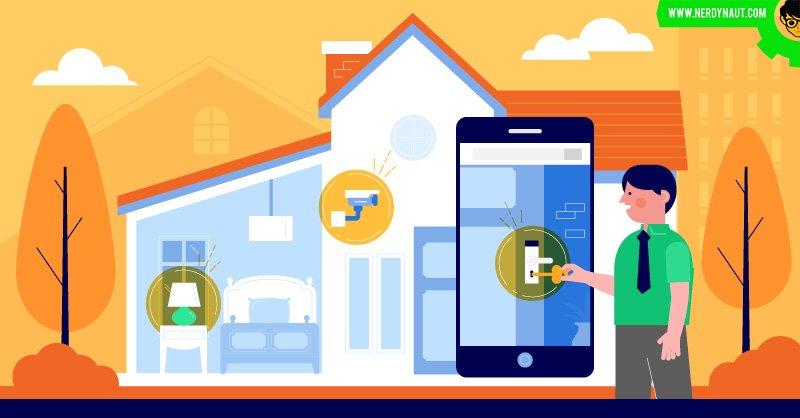Smart home automation can offer a sense of ease and cohesiveness. Having a smart home hub means your devices from different manufacturers are connected and can interact with each other via one home automation platform, the brain of the operation. You can have your smart devices work off your Wi-Fi, Bluetooth or networks like Zigbee or Z-Wave.
As with everything else in life, there are both rewards and challenges to smart home automation, especially when hubs like SmartThings or Wink Hub 2 are competing against smart speakers which also include hubs, like Amazon's Echo Show 10. Without doing your research or weighing these items before making a decision, you could find yourself shelling out a lot of money when you really don't need to.
With that in mind, here's what you need to know about the pros and cons using a dedicated smart home hub in your home.
Read more: The only way to save the smart home hub is to kill it | The smart home hub died, but HomePod, Echo and Nest are reincarnating the idea
Pros
Smart home hubs might seem like a near-relic these days, but there are still some good reasons to consider making one part of your smart home setup.
More inclusive automation
One of the biggest benefits of having a smart hub is centralizing your smart home's automation. The idea of a smart hub is to facilitate and unite all of your smart devices, so the centralization is really the prize here. A smart hub can integrate different networks, uniting Wi-Fi, Zigbee or Z-Wave and Bluetooth in one easy-to-manage app.

Individual smart devices may also have their own particular settings that a smart hub can easily integrate into your home's automated system. Using a smart speaker alone may enable commands, though the variety of compatible devices could be more limited compared to a smart hub.
A smart hub can operate automatically, adhering to a schedule you've assigned to it, but so can voice assistant routines. Many smart hubs can allow you to access the devices integrated in their system through an app, giving you remote control when you are out of the house and your voice is not present.
One app for everything
Even if you're not someone who often feels comfortable with technology, smart home hubs are easy to use in that they put everything in one place. This is a major benefit to consider. Who wants to struggle with multiple apps for devices that are supposed to make their life easier?
Smart speakers with only Wi-Fi or Zigbee could limit your device options, especially for smaller product categories like light bulbs. Wi-Fi smart home devices are the simplest to use with just a smart speaker on hand. Smart speakers are increasing their scope of capabilities, but smart hubs still offer the broadest range of customizable options if you're willing to put in the work to build routines and link devices.
Cons
While there are advantages to a smart home hub that can tie everything together, it's not a perfect solution. Let's take a look at some of the potential drawbacks.
Cybercrime
Unfortunately, cybercrime and online vulnerability is still a valid concern for consumers. Your smart home devices might be the gateway criminals need to gain access to your personal information. Any device on a network can become compromised, including a smart speaker, although the less integration, the better.
Once a smart hub becomes infiltrated by a cyber criminal, the devices that are connected become easy game. Infiltration can be avoided by getting your router protected by identity theft protection and monitoring services. That con goes for Wi-Fi connected devices, too. Be sure to keep your passwords complex and your apps up to date across all devices.
Added expense
Getting all the equipment you need to complete your smart hub home can get pricey. While there are cheap smart speakers like the Amazon Echo Dot or Google Nest Mini, those won't include a smart home protocol like Zigbee. A smart speaker may not be capable of tying all your devices together across protocols, but their cost is significantly lower than a smart hub.
Smart hubs don't usually come with speakers or displays, either so their higher price is solely because of the all the computer protocols inside. Systems like SmartThings and Wink Hub 2 can cost $110 and $290, respectively. Add this to the amount you're already paying for smart devices and services and the costs can add up. Smart speaker systems like Echo Dot and Nest Mini, on the other hand, cost around $50. Amazon's latest Echo includes a built-in Zigbee hub for $100.
When it comes to turning your home into a smart hub, there are many different routes you can go. Just be mindful of the costs and benefits so you don't find yourself in an unfortunate situation down the road.
In the future, manufacturers may change the predetermined dynamic of smart speakers and turn them into smart hubs, making smart hubs more obsolete than they feel today. Still, using a hub now can give you the most options for routines, customization and communication across devices in your home.
Do your research to find out which smart devices will integrate best with your home and what you feel will bring the most ease into your life. Should you decide to commit to a smart hub system, you can create an easier and more intuitive life for yourself.








